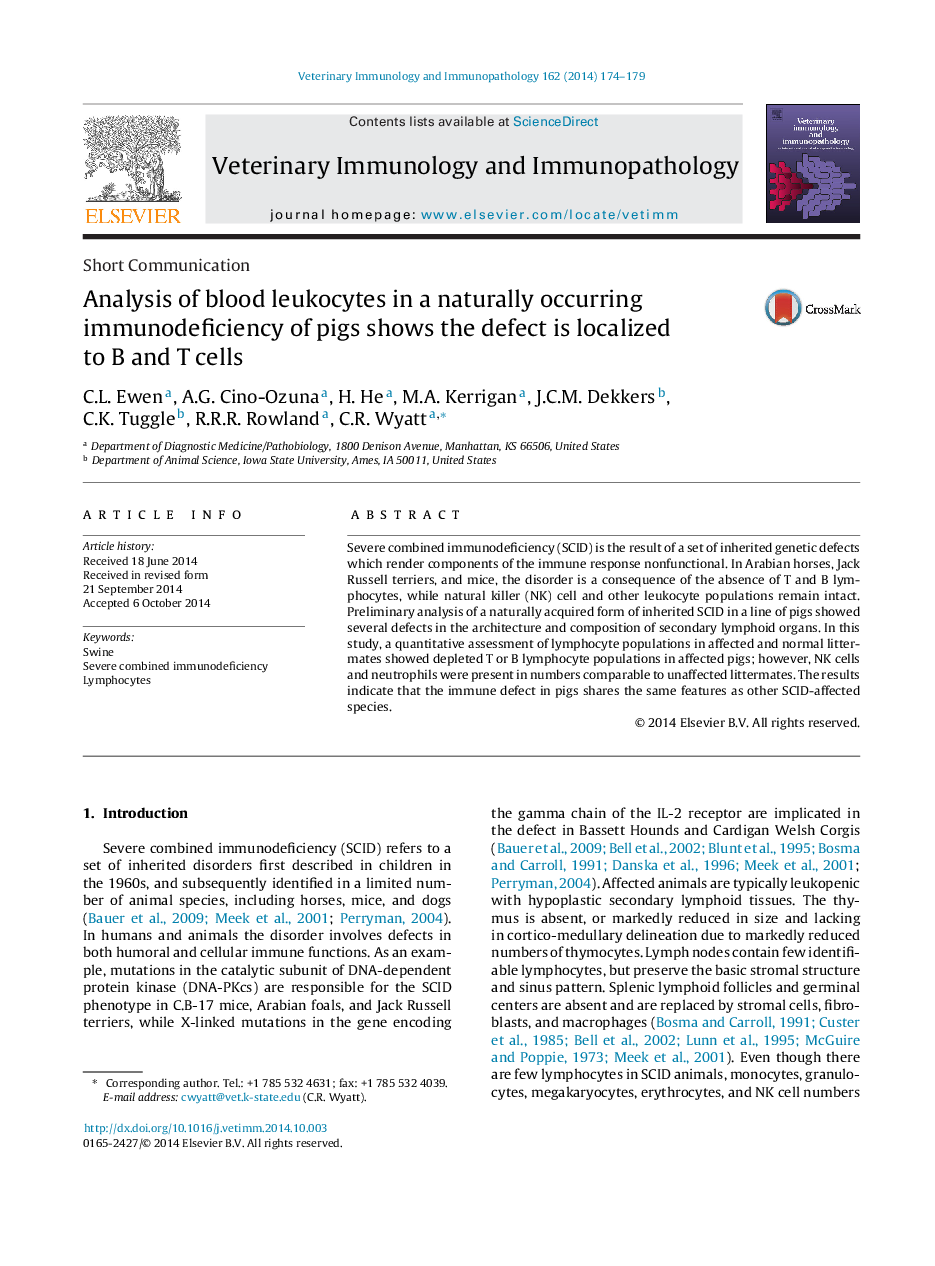| Article ID | Journal | Published Year | Pages | File Type |
|---|---|---|---|---|
| 2461492 | Veterinary Immunology and Immunopathology | 2014 | 6 Pages |
Severe combined immunodeficiency (SCID) is the result of a set of inherited genetic defects which render components of the immune response nonfunctional. In Arabian horses, Jack Russell terriers, and mice, the disorder is a consequence of the absence of T and B lymphocytes, while natural killer (NK) cell and other leukocyte populations remain intact. Preliminary analysis of a naturally acquired form of inherited SCID in a line of pigs showed several defects in the architecture and composition of secondary lymphoid organs. In this study, a quantitative assessment of lymphocyte populations in affected and normal littermates showed depleted T or B lymphocyte populations in affected pigs; however, NK cells and neutrophils were present in numbers comparable to unaffected littermates. The results indicate that the immune defect in pigs shares the same features as other SCID-affected species.
